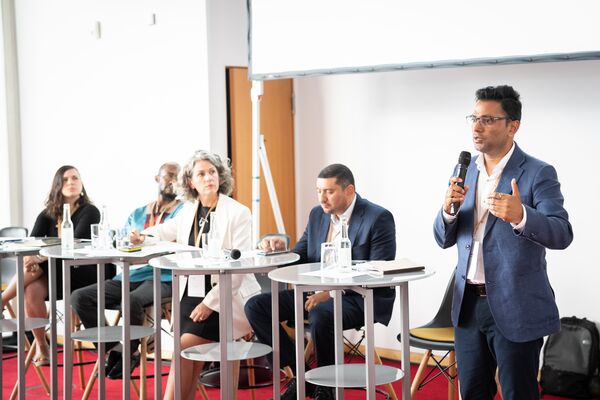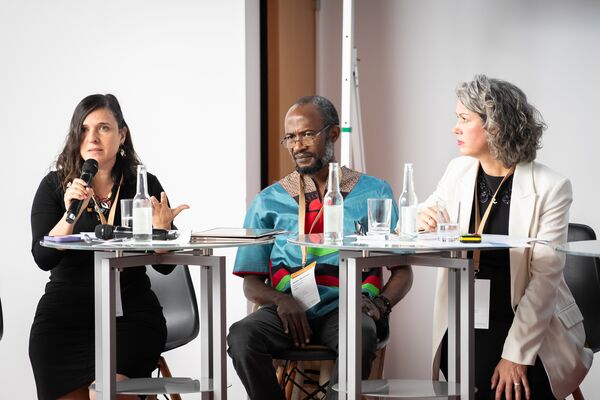There is a growing recognition that social protection systems need to evolve into adaptive frameworks, capable of offering supplementary support both before and after extreme weather events, such as droughts and hurricanes. In response to the increasing frequency and severity of such events, there is a heightened awareness of the vital role that climate and disaster risk financing and insurance instruments, such as insurance or contingency credit, can play in enhancing the resilience of these social protection systems. As the number of extreme weather events continues to rise, governments are faced with the imperative to strategize on how best to harness these financial instruments, ensuring swift and targeted assistance to the most vulnerable groups in the aftermath of disasters, ultimately promoting more effective disaster risk management.
In recognition of this need for governments and organizations to think creatively on how social protection systems can leverage CDRFI to more efficiently provide support after disasters, the World Food Programme (WFP) together with the Global Shield Secretariat was invited to organise a session as part of the Global Forum on Adaptive Social Protection in Berlin on June 14th, 2023, to highlight the strong linkage between social protection and disaster risk finance. The session titled “Climate and Disaster Risk Financing and Social Protection: The increasing role of pre-arranged financing for social protection in the Global Shield and beyond” provided insights on three case studies from Nicaragua, Fiji and Malawi, showcasing how pre-arranged financing solutions were coordinated with social protection systems.
The session focused on the growing acknowledgement that pre-arranged finance, swiftly and reliably disbursed in the event of a disaster, can be a valuable tool to enable social protection systems to protect people during shocks like extreme climate events. In recent years, international organisations, donors and countries have begun to explore how to link Climate and Disaster Risk Finance and Insurance (CDRFI) instruments with national social protection systems in order to strengthen preparedness and support early action and shock response at scale. Some of these instruments include forecast-based financing and micro and macro insurance (including regional risk pools, such as the Caribbean Catastrophe Risk Insurance Facility (CCRIF SPC) and the African Union’s African Risk Capacity (ARC)), among others.
Zoe Scott, a disaster risk finance and management specialist, moderated the discussion while Martin Kipping (former Head of Division for Climate Policy at the German Federal Ministry for Economic Cooperation and Development) welcomed the audience and spoke about how the Global Shield against Climate Risks could play a key role in strengthening social protection in vulnerable countries through linking CDRFI instruments with national social protection schemes. Speakers included Mr. Erwing de Castilla Cisne, Technical Advisor, Ministry of Finance and Public Credit, Gov. Nicaragua, Amit Kumar Garg, Development Economist at the United Nations Capital Development Fund (UNCDF), Mr. Mulder Mkutumula, Scalable Safety Nets Coordinator at the National Local Government Financing Committee of the Government of Malawi, Ana Solórzano, Social Protection and Climate Advisor at WFP, and Sara Ahmed, Financial Advisor to the V20 Group of Finance Ministers.
Linking CDRFI to social protection systems can enhance emergency preparedness and can lead to quicker emergency response after a disaster. Good quality CDRFI that triggers appropriate funding when a disaster of a predefined magnitude strikes can contribute to a better line of sight for climate-vulnerable people, quicker distribution of resources to affected people, including in anticipation of a climate shock forecast, greater cost-effectiveness, and increased government leadership in emergency response. However, given that CDRFI instruments and their potential usage is still evolving, there are limited global examples that can showcase what works, why and how.
The first presentation by Erwing de Castilla Cisne (Government of Nicaragua) thoroughly explained how the government of Nicaragua has been strengthening the linkage between macro-insurance and social protection. He explained that WFP, as part of their ongoing collaboration with the Ministry of Finance in Nicaragua, supported a premium top-up to scale-up coverage of the Caribbean Catastrophe Risk Insurance Facility (CCRIF) – a sovereign insurance product that provides macro-level financial protection against tropical cyclones. When Nicaragua was hit by a tropical storm in 2022, CCRIF made a payout of US$ 8.9 million to the government, out of which US$ 640,000 were channelled through WFP to support the implementation of response and recovery projects, including social protection.
Amit Kumar Garg (UNCDF) discussed the linkage between climate micro-insurance and social protection, using the example of Fiji. In 2020, the government of Fiji provided a one-off unconditional cash assistance to approximately 10,800 social welfare recipients in response to a tropical cyclone. He highlighted how the response took longer than anticipated (four months) which caused delays in relief and rehabilitation efforts. Learning from these challenges, the Fijian Government launched a partnership with UNCDF on a climate risk parametric micro-insurance scheme for low-income households in the Pacific – the first of its kind.

Amit Kumar Garg presenting linkages between climate risk insurance and social protection in Fiji
© Steffen Kugler
Mr. Mulder Mkutumula (Government of Malawi) presented how the government’s disaster risk finance strategy puts a strong focus on establishing social cash transfer programs. The World Bank assisted by providing a scalability mechanism throughout the project, including satellite data. Today, the program covers 600,000 people in six drought-prone districts. Malawi has a finance strategy in place for six years, with a mission to proactively manage economic and fiscal risks as well as protect public finances against disasters.
Ana Solórzano (WFP) explained how CDRFI instruments are always arranged before a shock, but they can be designed to release money through social protection systems at any phase of a crisis, including beforehand, in order to pay for anticipatory action. She explained that WFP is pioneer on the approach, together with the German Red Cross, and has been providing technical assistance and implementation support to governments to make sure assistance through social protection reaches climate vulnerable people ahead of a forecasted extreme weather event.

From left to right: Dr Ana Solórzano (WFP Social Protection and Climate Advisor), Mr. Mulder Mkutumula (Scalable Safety Nets Coordinator, National Local Government Financing Committee, Government of Malawi) and Zoe Scott (Independent Consultant and moderator of the session)
© Steffen Kugler
Sara Ahmed (V20) introduced the Global Shield, an initiative launched at COP27 in 2022. With its systematic, coherent and sustained approach to financial protection, the Global Shield aims to support the most vulnerable countries with improved pre-arranged and trigger-based financial protection against climate and disaster-related losses. It specialises in risk transfer products and strengthens national systems and programs to deliver financial assistance and support to shock-affected households and people, including through social protection systems.
In summary, the three cases of Nicaragua, Fiji and Malawi highlight the strong linkages between pre-arranged financing and social protection, aligning with the goals of the Global Shield, to foster inclusive collaboration to support people-centred climate finance.
For further information on WFP’s work on linking disaster risk financing with social protection, visit https://www.wfp.org/publications/linking-disaster-risk-financing-social-protection-overview-concepts-and-considerations
